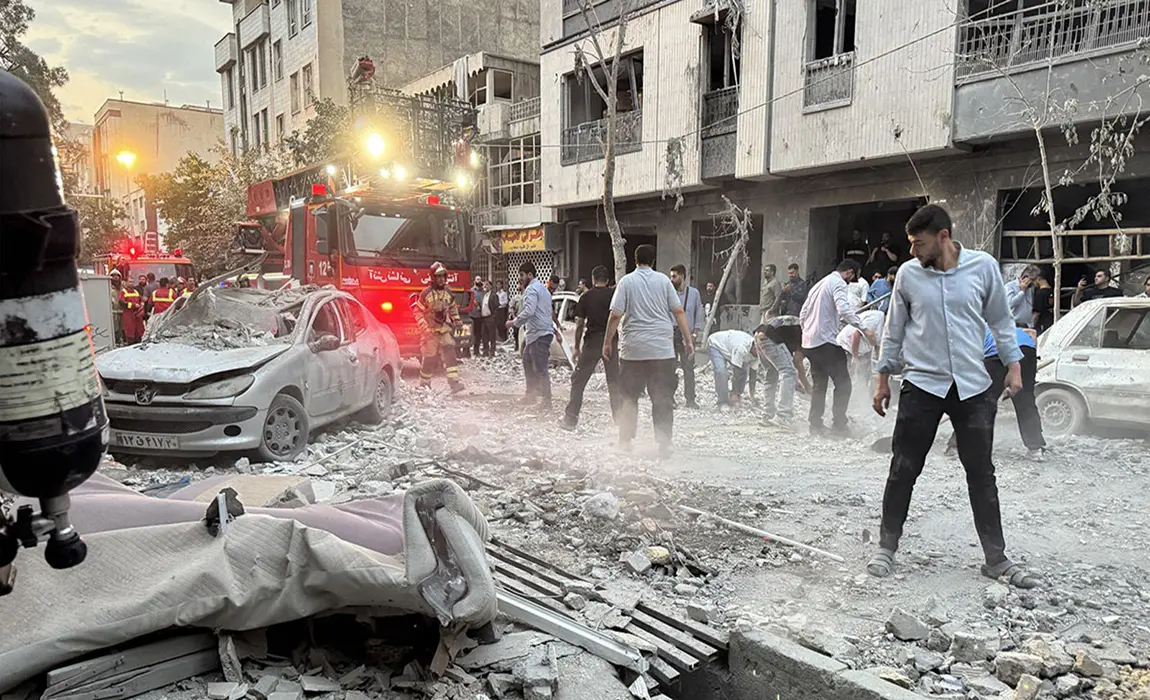Yusuf Khalaf Yusuf — President of the People’s University
12 days of intense exchanges between “the Entity” and Iran culminated today in a ceasefire — one of the most sensitive confrontations in decades. These events have unveiled nine pivotal dynamics reshaping power balances across the region and bearing significant implications for Iraq.
1. Israel’s Strategy: From Security to Hegemony
Israel no longer views the conflict through a purely security lens. It now seeks to reshape the Middle East via a politico-military project. Through expanding normalization with regional states, it aims to forge a bloc wielding decision-making power across economics, technology, and security — a step toward its vision of a “Greater Israel.” Yet this strategy clashes with deeply rooted Arab sentiment and a century-old legacy of resistance.
2. Israel’s Strategic Misstep: Ignoring Historical Memory
Despite its military edge, Israel erred by underestimating the enduring resolve of the local population. The bombardment of innocents in Palestine, Syria, Lebanon, and even Iraq has left scars on collective memory — fueling narratives of resistance. This emotional dimension cannot be overcome by precise strikes or air superiority.
3. Iran: The Unconventional Power that Surprised
Contrary to expectations in Tel Aviv and Washington, Iran responded with coherent, pre-planned strikes and internal solidarity that surprised many. Though devastating in certain areas, the retaliatory missile campaign sent a clear signal: Iran can defend itself and is not the same fragile target it was in 2003.
4. Seeking the US Spotlight: A Sign of Weakness
When Israel failed to neutralize Iran’s nuclear capabilities, it appealed for direct US intervention—a cry from a position of strategic and political weakness. But this plea came at a time when American global military engagement faces growing skepticism.
5. America’s Double Standard: Undermining International Legitimacy
The joint US–Israeli strikes on Iranian nuclear sites, outside UN Security Council mandate, erode the credibility of key international institutions, showing they act only when aligned with the interests of powerful states.
6. The “Al-Udeid Attack”: Turning Point or Final Signal?
Iran’s strike on Al-Udeid Air Base in Qatar marked a critical juncture. Soon after, ceasefire talks began—suggesting either that Iran’s swift response rattled the coalition, or that the escalation was designed to peak here and prevent further spread.
7. Iran’s Security Wounds Uncovered
Despite its diplomatic victory, Iran must confront serious internal security shortcomings revealed during the conflict: assassination attempts, espionage, and breaches attributed to Mossad and Western intelligence. Now comes the task of realigning internal defenses.
8. No Israeli Victory, Despite Massive Destruction
Despite the intensity of bombardment, Israel failed to topple Iran’s regime, halt its nuclear program, or destroy its missile capabilities. Instead, it has intensified regional animosity, undermining any notion of victory.
9. Iran’s Emergence as a Regional Deterrent
Precision rockets, multiple fronts, and resilience under fire have repositioned Iran as a formidable regional power. The Middle East may no longer adhere to the notion of “Greater Israel,” but rather a new balance shaped by Iranian influence, open conflict, and fragile alliances.
Implications for Iraq
1. Iraq as a Proxy Battleground
Drones, flights, and missiles traversed Iraqi airspace during the conflict—drawing Iraq into the vortex without its consent. Baghdad must urgently reassess its security policy and regional affiliations.
2. Sovereignty at Risk
Uncoordinated strikes on Iraqi territory exposed its sovereignty to foreign incursions. Baghdad must adopt a firm stance to avoid becoming a passive arena for external agendas.
3. Bolstered Iraqi Resistance Factions
Iran’s retaliatory success could embolden pro-Iranian factions within Iraq, raising pressure on US forces and complicating internal stabilization efforts.
4. Economic and Security Fallout
Heightened regional tension affected oil prices and investor confidence in Iraq, while the threat of broader warfare threatened domestic stability.
Conclusion
The ceasefire does not mark an end, but a new phase in this enduring conflict. Israel did not win; Iran was not defeated. The Middle East now faces an era of redefined strategic calculations — and Iraq stands at a critical juncture. To preserve its security and stability amid this shifting landscape, Baghdad must urgently rethink its approach and assert its national strategy.


